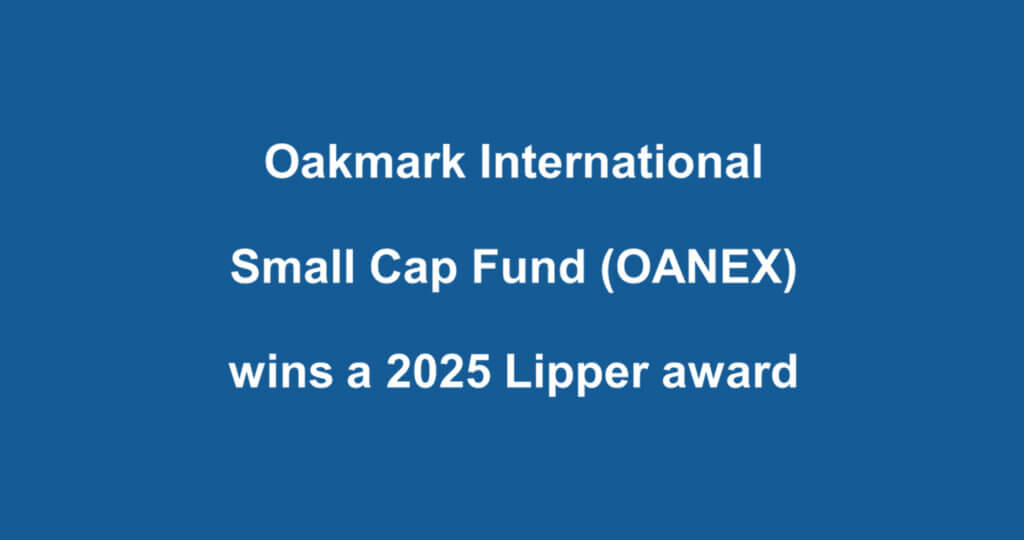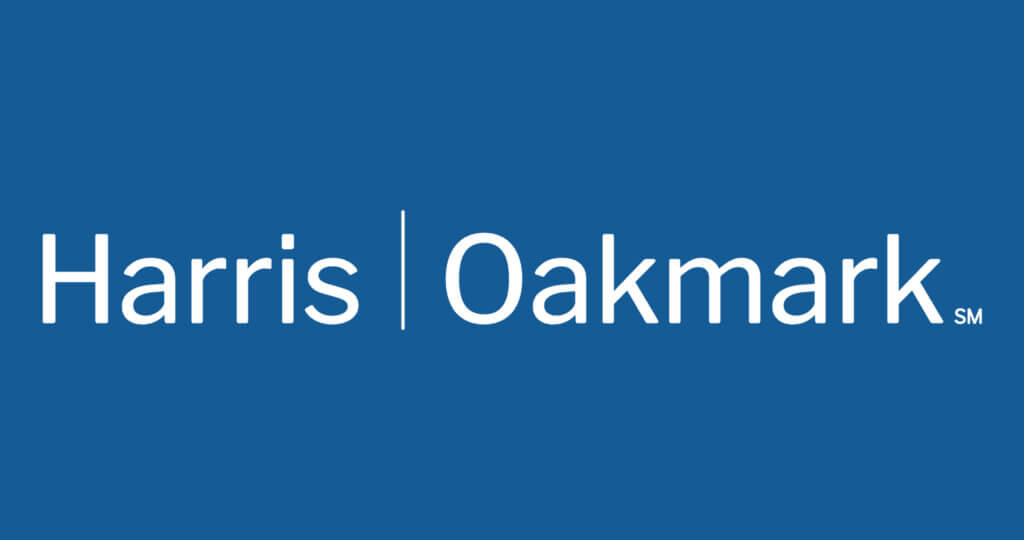Oakmark International Small Cap Fund - Investor Class
Average Annual Total Returns 12/31/12
Since Inception 11/01/95 9.95%
10-year 12.41%
5-year 1.80%
1-year 18.39%
3-month 8.69%
Gross Expense Ratio as of 09/30/12 was 1.41%
Past performance is no guarantee of future results. The performance data quoted represents past performance. Current performance may be lower or higher than the performance data quoted. The investment return and principal value vary so that an investor’s shares when redeemed may be worth more or less than the original cost. The performance of the Funds does not reflect the 2% redemption fee imposed on shares redeemed within 90 days of purchase. To obtain the most recent month-end performance data, view it here.
The Oakmark International Small Cap Fund performed well in both absolute and relative terms for the quarter and one-year periods ending December 31, 2012. For the quarter, the Fund returned 9%, compared to 5% for the MSCI World ex U.S. Small Cap Index. For calendar year 2012, the Fund returned 18.4%, and the index returned 17.5%.
The top-contributing stock for both the quarter and the calendar year was Australian food manufacturer Goodman Fielder. Goodman’s products include packaged baked goods, spreads, dairy products and dressings. A year ago, Goodman was the largest detractor for the Fund, but management made considerable progress in its turnaround effort during 2012. In the fourth quarter, Goodman announced price increases within its bakery and grocery business—an important milestone given intense price pressure in these businesses over the previous two years. Management remains focused on improving the company’s cost structure by closing underperforming bakeries (three in Australia) and investing in larger, more efficient sites. Management is also working to improve the company’s distribution costs and increase its product innovation, which should lead to higher margins in the coming years. Goodman recently sold two non-core assets: Integro, a fats and oils business, and Champion Milling, a New Zealand flour maker. This should allow management to focus more attention on its core businesses. We are pleased with the progress Goodman has made in 2012, and we believe that this management team has a clear strategy for continuing to improve the company and its financial performance in the coming years.
The largest detractor from the Fund’s performance for the past quarter and year was Japanese gaming company Square Enix Holdings. During the quarter, Square Enix reduced its sales, earnings and profit margin forecasts for the current fiscal year. Though the market anticipated these downward revisions, they were more significant than expected. As an explanation, management cited higher production and operations costs related to major releases of online game services. Other factors included sluggish sales of arcade game consoles and slower-than-expected sales of the high-definition game Sleeping Dogs. Square Enix also faces two other issues: the company is between hardware cycles, and customers can now download games and apps to mobile devices at cheaper prices. Despite these issues, the gaming industry continues to expand. It is the fastest growing entertainment for kids, and women represent its largest growth category. However, the industry’s revenues tend to fluctuate, which cause stock prices to shift in turn. Despite its recent setbacks Square Enix remains an attractive investment in our view.
During the quarter, we did not divest from any portfolio holdings, but we added two new names: Amplifon and Morgan Crucible. Headquartered in Italy, Amplifon is the world’s largest hearing aid retailer, with a 9% global market share and a 14% market share in the countries in which it competes. Morgan Crucible is one of the U.K.’s largest manufacturers of carbon and ceramic products for industrial use.
Geographically, we ended the quarter with our European holdings comprising 57% of the portfolio, up from 53% at the end of the previous quarter, and our Pacific Rim holdings decreased slightly to 38%.
Because we continue to believe that the U.S. dollar remains weak against some currencies, we maintained hedge positions on five of the Fund’s currency exposures. At the recent quarter-end, we have hedged a portion of the Fund’s Australian dollar, Norwegian krone, Swiss franc, Japanese yen and Swedish krona exposures.
We thank you for your continued confidence and support and wish all of you a very happy and healthy 2013!
As of 12/31/12, Goodman Fielder, Ltd. represented 2.9%, Square Enix Holdings Co., Ltd. 2.1%, Amplifon S.p.A. 0.3%, and Morgan Crucible Co. PLC 0.8% of the Oakmark International Small Cap Fund’s total net assets. Portfolio holdings are subject to change without notice and are not intended as recommendations of individual stocks.
The MSCI World ex U.S. Small Cap Index (Net) is a free float-adjusted market capitalization index that is designed to measure global developed market equity performance, excluding the U.S. The MSCI Small Cap Indices target 40% of the eligible Small Cap universe within each industry group, within each country. MSCI defines the Small Cap universe as all listed securities that have a market capitalization in the range of USD200-1,500 million. This benchmark calculates reinvested dividends net of withholding taxes using Luxembourg tax rates. This index is unmanaged and investors cannot invest directly in this index.
The stocks of smaller companies often involve more risk than the stocks of larger companies. Stocks of small companies tend to be more volatile and have a smaller public market than stocks of larger companies. Small companies may have a shorter history of operations than larger companies, may not have as great an ability to raise additional capital and may have a less diversified product line, making them more susceptible to market pressure.
Investing in foreign securities presents risks that in some ways may be greater than U.S. investments. Those risks include: currency fluctuation; different regulation, accounting standards, trading practices and levels of available information; generally higher transaction costs; and political risks.The discussion of the Fund’s investments and investment strategy (including current investment themes, the portfolio managers’ research and investment process, and portfolio characteristics) represents the Fund’s investments and the views of the portfolio managers and Harris Associates L.P., the Fund’s investment adviser, at the time of this letter, and are subject to change without notice.








